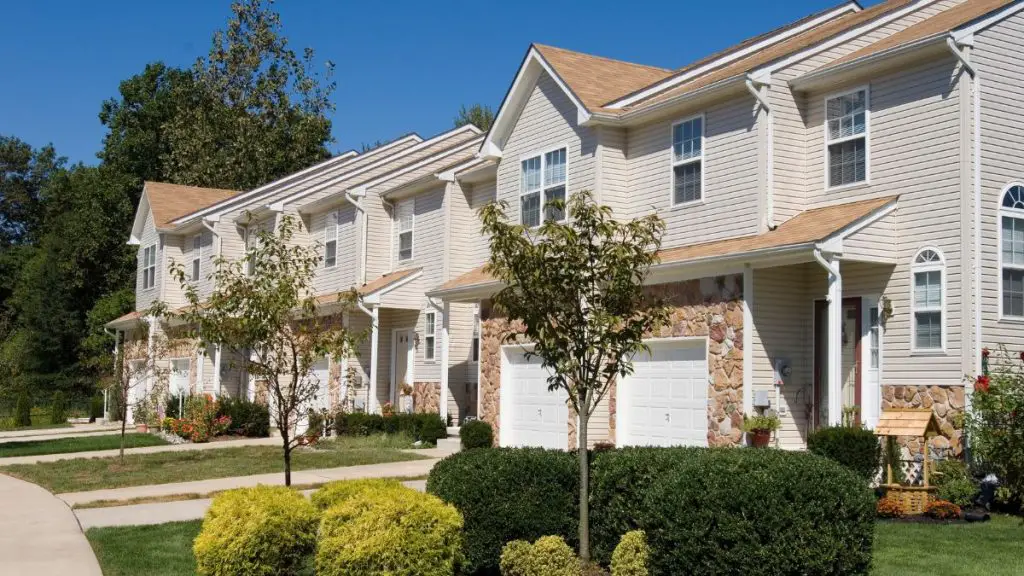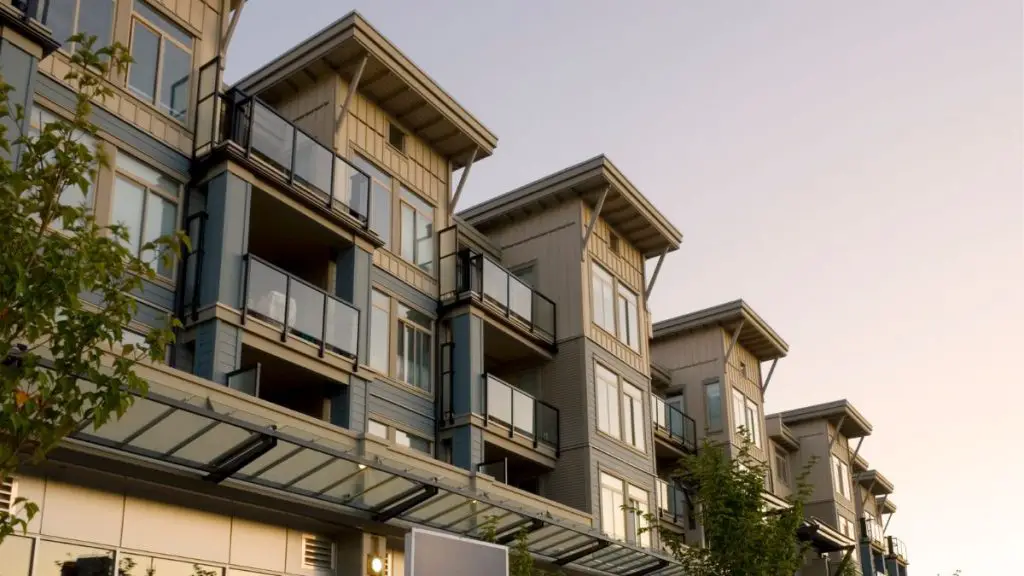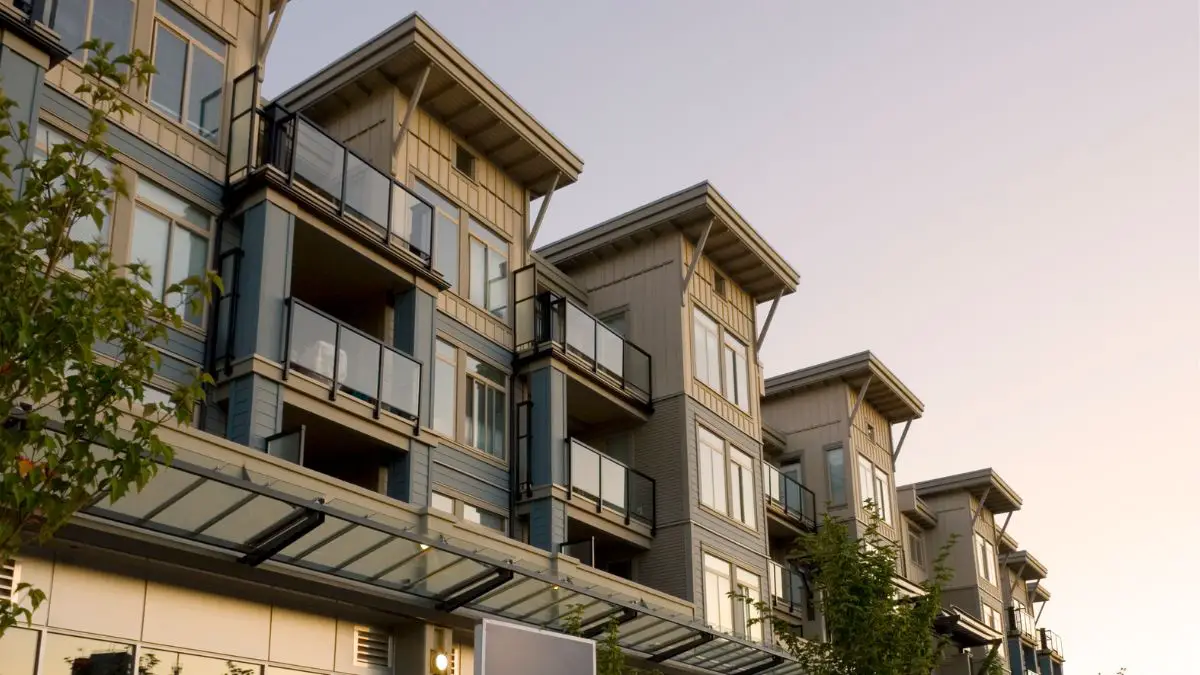If you’re considering purchasing a new home, you might wonder about the distinctions between townhouses and condos. Although these two property types may seem similar at first, they have many differences.
This blog post will explore the main differences between townhouses and condos. Let’s get started!
Townhouse vs. Condo
First, let’s define what each type of property is.
A townhouse is an attached single-family home, typically part of a row of similar houses. Townhouses usually have a small outdoor space, such as a patio or backyard, and often share walls with neighboring homes.
Condos, on the other hand, are individual units within a larger building or complex. Condos are similar to apartments, but they are owned rather than rented.
What Are the Differences?

One of the main differences between townhouses and condos is ownership and maintenance.
Ownership
For townhouse owners, you will be responsible for maintaining and repairing both the interior and exterior of the house, as well as any shared common areas.
As an owner of a condo, you will be responsible for maintaining and repairing the interior of your unit, while the condo association will handle the maintenance and repair of common areas and the exterior of the building or complex.
Size
Another key difference between townhouses and condos is the size and layout of the properties.
Townhouses are usually larger than condos, with multiple levels of living space. In addition, they often have a traditional layout, with separate rooms for different functions, such as a living room, kitchen, and bedrooms.
On the other hand, condos are generally smaller. For example, they may have an open floor plan, with fewer walls dividing the living spaces.
Amenities
When it comes to amenities, townhouses and condos can vary greatly. Some townhouse communities may have shared amenities, such as a pool or fitness center, but these are less common than they are in condos.
On the other hand, condo communities often have a wide range of amenities, from pools and fitness centers to outdoor grilling areas and clubhouses.
Privacy
Townhouses generally offer more privacy, as you have your own home with your outdoor space.
Condos may have less privacy, as you may share walls or common areas with other units. This can be a trade-off for the convenience and community atmosphere of living in a condo complex.
Parking
Many townhouses have private garages or driveways, while condos may have shared parking spaces or designated spots for each unit. This is something to consider if you have multiple vehicles or live in an area with limited street parking.

Flexibility
Another consideration between a townhouse and a condo is your flexibility in making changes to your home.
With a townhouse, you have complete control over the property, which means you can make any changes or renovations you like without needing permission from anyone.
This can be a major advantage if you have specific ideas for decorating or remodeling your home.
With a condo, you may be subject to specific rules and regulations set by the condo association.
This means that you may need approval before making any changes to your unit, such as painting the walls or installing new flooring.
While these rules are put in place to ensure that the overall appearance and value of the complex are maintained, they can also be a limitation if you want complete control over your home.
Location
Townhouses are often found in suburban areas, while condos are more common in urban settings.
This means that a condo may be a better choice if you want to live in a more walkable, city-like environment.
However, a townhouse is a better fit if you prefer a more suburban setting with more space and privacy.
Cost
Finally, there is the issue of cost. Townhouses tend to be more expensive than condos due to their larger size and the fact that you own the entire property.
Condos are often more affordable, especially in urban areas with higher prices. However, it’s important to remember that the cost of a townhouse or condo can vary widely depending on location, age, and amenities.
Resale Value
In general, single-family homes appreciate value more quickly than condos, making a townhouse a more financially sound investment in the long run.
However, this is only sometimes the case, and it’s important to research and consult with a real estate professional to determine which type of property is likely to appreciate the value in a particular area.
Which One Is Right For You?
Choosing a townhouse and a condo will depend on your personal preferences and needs.
For example, if you want more space and privacy and are okay with being responsible for maintaining the entire property, a townhouse might be the right choice for you.
A condo might be a better fit if you want to be part of a community with shared amenities and are okay with living in a smaller space.
Related Questions
What is the difference between a townhome and a townhouse?
A townhome and a townhouse are essentially the same type of property. The terms are often used interchangeably to refer to an attached single-family home, typically part of a row of similar houses.
In what way is a townhome similar to a condominium?
A townhome is similar to a condominium (condo) in that both properties are owned rather than rented, and the owner is responsible for maintaining and repairing the unit’s interior.
Both townhomes and condos may also be part of a larger community or complex with shared amenities such as pools, fitness centers, and clubhouses.
Final Thoughts
Townhouses are single-family homes that you own outright, while condos are individual units within a larger complex that you share ownership of with other unit owners. Take the time to tour different properties and speak with current homeowners or real estate professionals to better understand what each type of property has to offer.


